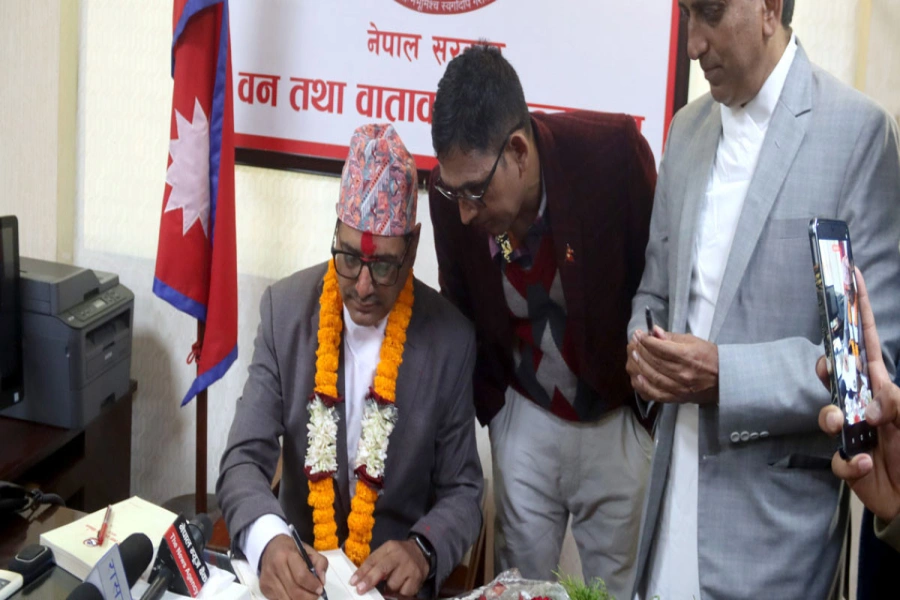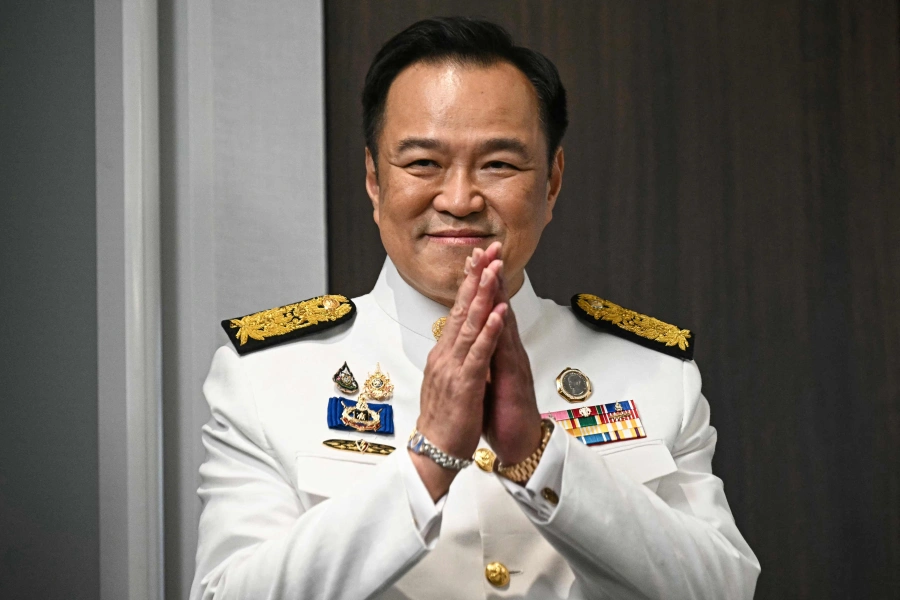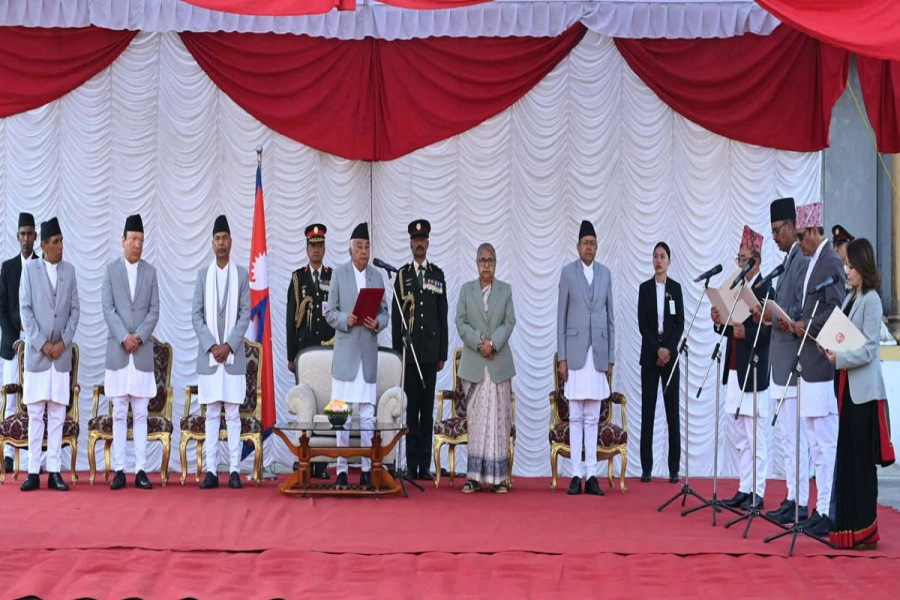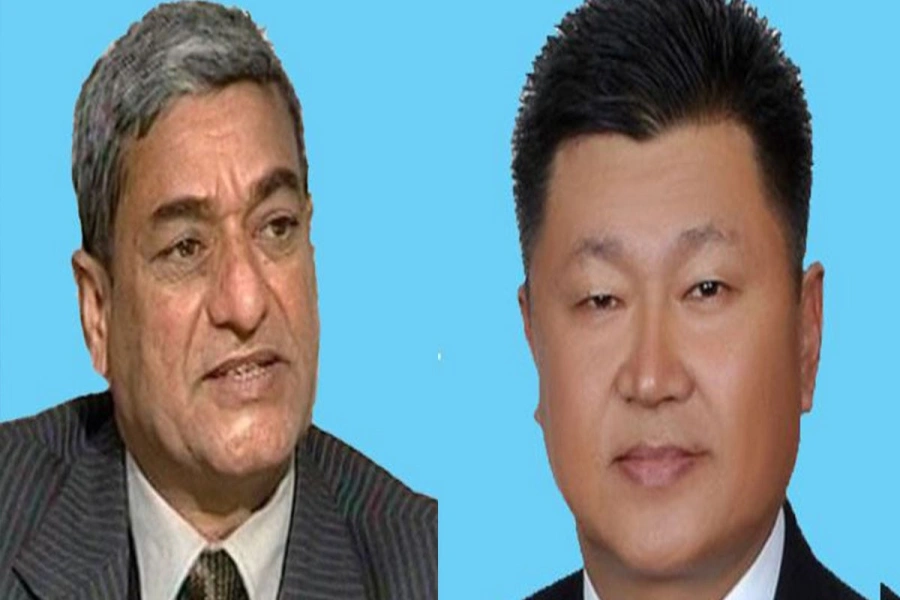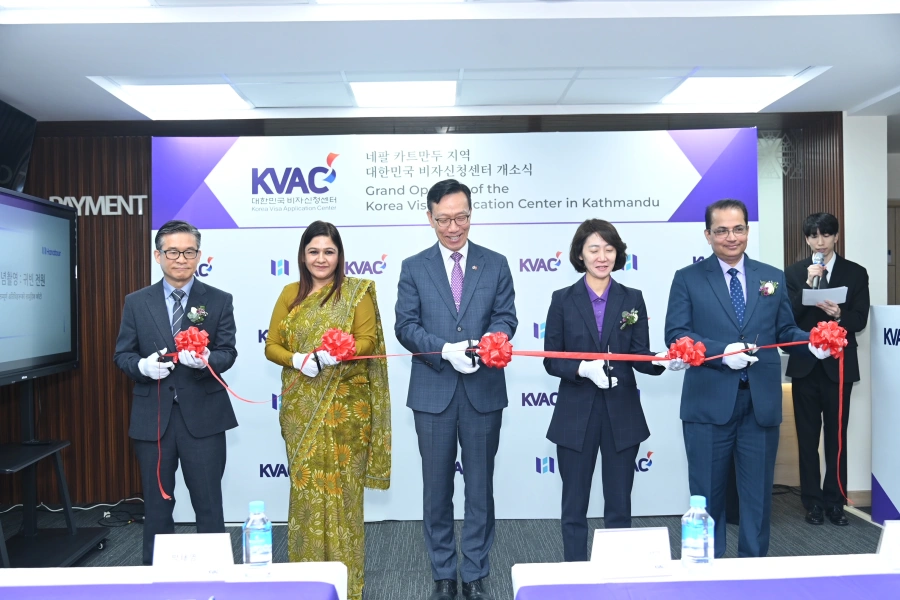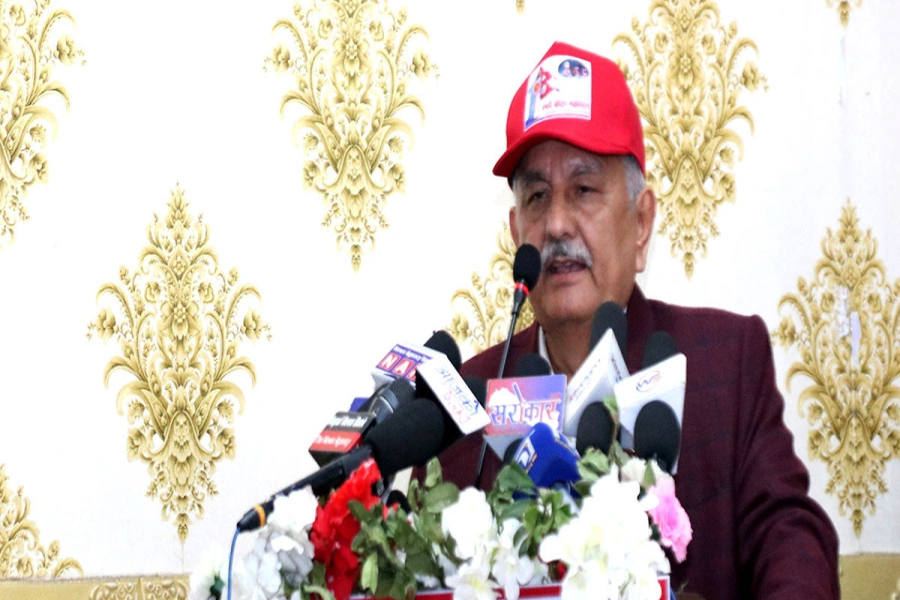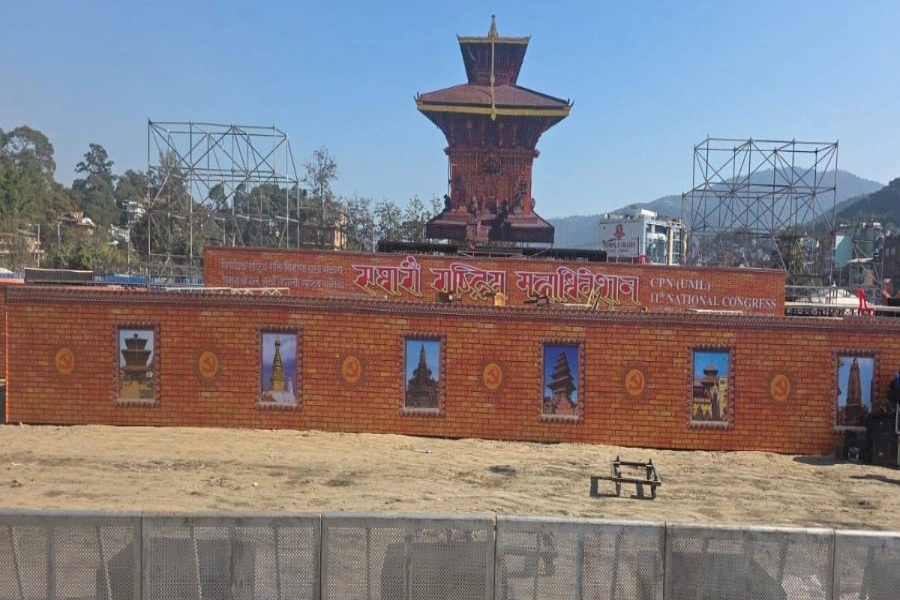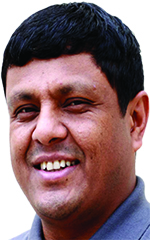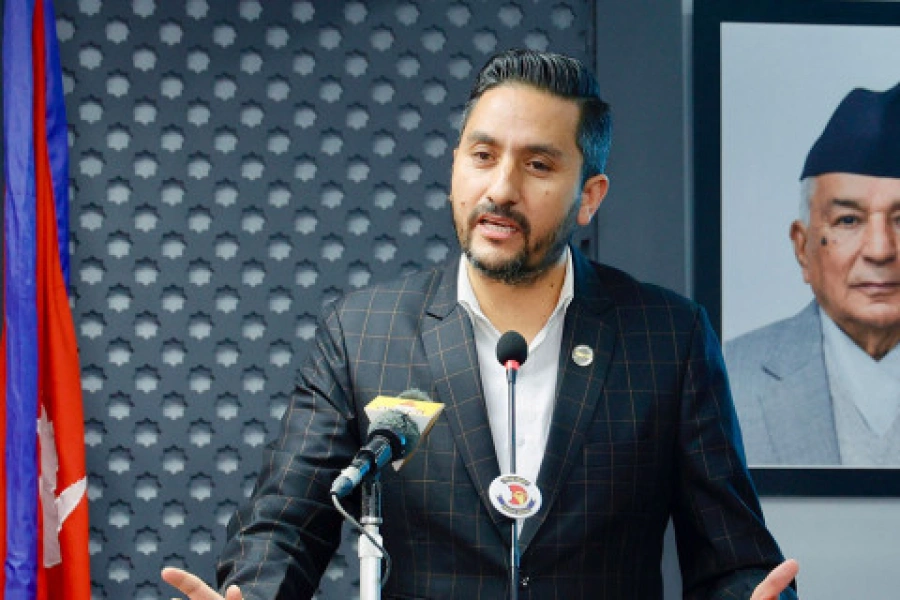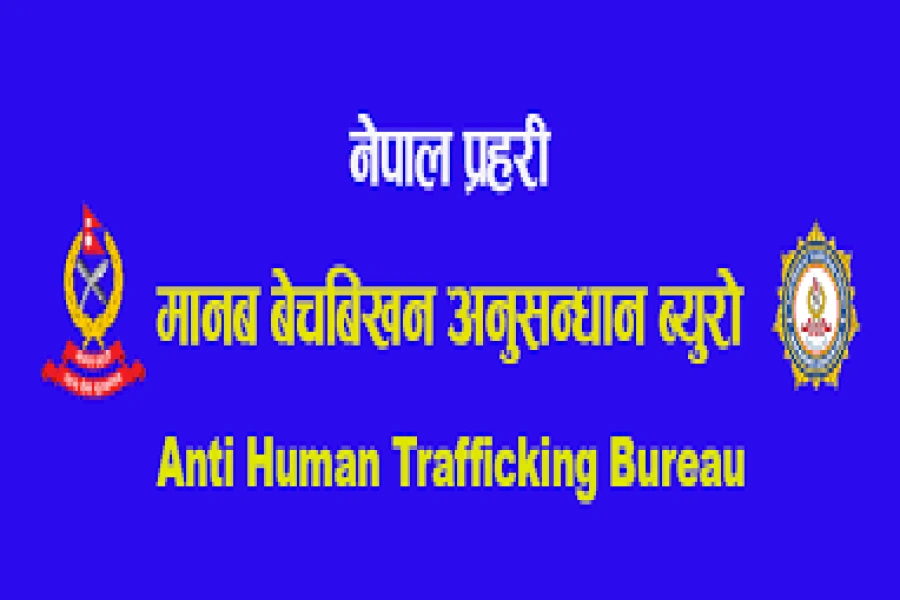Nepal-EU relations have a robust history of cooperation and collaboration, underpinned by a shared commitment to mutual development and regional stability. These diplomatic bonds are continuously evolving and deepening across various sectors, making a substantial contribution to Nepal's prosperity and well-being. Since 1973, the European Union has played a pivotal role as a valuable development partner for Nepal, with numerous EU member states maintaining longstanding development partnerships with the country. Both sides are making preparations to commemorate 50 years of relations between the EU and Nepal next year. In light of this context, Republica Editor Kosh Raj Koirala and Nagarik Editor-in-Chief Guna Raj Luitel recently met with the newly-appointed EU Ambassador to Nepal, Veronique Lorenzo, for an interview. Here are some excerpts from the conversation which delved into various aspects of Nepal-EU bilateral relations:
Let's begin with your initial impression on Nepal and the Nepali people in general.
My impression of Nepal has been excellent. This is not the first time I've come to Nepal. I came many years ago on a mission, 22 years ago, to be exact in 2001, at a time when you could not get out of Kathmandu because of the insurgency. It was difficult to work here. So, my first impression, of course, is that things have changed incredibly. I look at the figures in terms of human development and other indicators, and there's been huge progress. You know, Kathmandu, of course, has become more complex, with higher skylines and much bigger. So, there's this tremendous difference. That's the visual point. And then, of course, people here are very friendly. I'm really pleasantly surprised by how open people are and willing to engage in a real dialogue, which is not always the case in other countries. I have felt very welcome here.
Can you provide us with an overview of the current state of EU-Nepal relations and the achievements made over the years?
Next year, we are commemorating 50 years of relations between the EU and Nepal. The quality of relations is excellent, and I think it has deepened over time. Initially, the Delegation of the European Commission focused mainly on development cooperation. As we became the European Union, this relationship has evolved and matured with the maturing of Nepal's social and economic system and also with the maturing of the EU. The EU has become a political and geopolitical commission. It has become strong in terms of conveying and translating its internal EU policy to its external relations. We have 170 delegations across the world now. With the Lisbon Treaty and the creation of the External Action Service center, the EU has become a more integral interlocutor for Nepal, and the relationship has acquired more dimensions.
We have done our best to support Nepal in the last 50 years. As a steadfast partner, we have accompanied Nepal through social and economic upheavals. We have supported the peace process and contributed to the peace trust fund. We are keen on supporting transitional justice when it comes to fruition. We have also been a very strong supporter of education. Our education program is almost 30 years old in Nepal. In these 30 years, we have seen a definite improvement in terms of access, enrollment rates, and girls' access to education. But there is still a lot to achieve in terms of quality looking forward. The achievements are undeniable.
And now, if we talk about the last few years, there's a very clear objective to support the new Constitution and the federalist agenda. We have quite a sizable support of local governments to allow them to move forward and implement the federalist agenda. Last but not least, I am trying to pick up the most important achievements. There's a lot of dialogue and discussions around climate change. This is something that has impacted Nepal very strongly, affecting people's daily lives. So, there's a need to work on that at all levels. We work on this at the multilateral level, preparing for COP-28 and supporting Nepal to move forward with ambitious commitments. We, on the side of the European Union, have been extremely ambitious. We have the Green Deal at the heart of all our political agenda, and this is also translated into our cooperation programs, where we have green recovery as one of the pillars of the areas of concentration of our cooperation. To summarize, we accompany the state in peace, in local governance, human capital, education, and nutrition, and accompany the green transition not only with investments but also with partnerships in multilateral forums.
What are the priority areas for cooperation between Nepal and the EU? Is there any shift in EU's priorities in the coming days, or will you focus on the same areas where we are working now?
Victims demand proper role in transitional justice, reject TRC,...

It is those areas I just mentioned. In fact, the first one is Green Recovery with a strong focus on energy. The second one is human capital with a strong focus on education, vocational training, and nutrition. The third one is governance with support to local governments and the federalist agenda. Our current program spans from 2021 to 2027. We will have a mid-term review in 2024, which will reconfirm these priorities. So, there's no question of a shift in priorities. These priorities also correspond to Nepal's own priorities. This is how they're defined. What will change is the way of doing business. What's coming up very strongly for the European Union is to work to try and harness all the energies from its member states. This is what we call Team Europe. When we work in energy, we work with the Germans; when we work in education, we work with Finland, but also harness energies from the financing institutions, development banks, and the private sector.
This is what we call the Global Gateway, and it aims to leverage. So, what we are shifting is from purely grants to a mix to be able to leverage financing from private sectors and international financial institutions to improve infrastructure and connectivity. There is clearly an infrastructure gap that has been identified, not only in Nepal. You know, a lot of investment is needed in renewable energies for this green transition. It is more with Global Gateway that we will try to move forward. It's a shift in the way we do business. What is also coming up strongly are the challenges of digitalization with a number of new areas where, again, not only Nepal but also the EU is struggling to understand new legislation, issues of cyber security, data protection, and how to regulate artificial intelligence. The European Union has taken the lead in trying to establish legislative frameworks to regulate the digital space, and we are ready to share this knowledge.
And what the European Union has done is to make available this knowledge and what we've done so far inside the European Union to make it available for the partners who are interested. This is a potential. This is not something I have discussed with the Nepali government, but it is obviously an area that is growing in importance for all governments.
We have a federal system of governance in place, but we can already hear from a section of people that this system is too expensive and we cannot sustain it. In such a situation, what kind of suggestions can you provide to our government or our people?
I think the first and most important one is that federalism was a political decision and something that at the time, the government and the people of Nepal thought would correspond more to their aspirations to have a local government closer to their identity. That is one thing. Second, it is not an easy process. You know, it was decided like this, and it was very brave to launch a federal structure. But in a country where the state has been centralized, it's something that takes a long time. So, I think it's inevitable that you will have criticisms. And it's important to counter these criticisms with facts. Is it really more expensive? I ask to look at the figures. The figures are 7% of expenditure at the provincial level. The seven provinces, which means 1% of the national budget per province. Is that expensive? Local level accounts for 23% of the national budget for 753 municipalities. Is that expensive? So, the point is, for the time being, 70% remains at the central level. Now, I don't have all the elements to understand what the very complex picture is, but what I can see so far is that at least the few facts I know do not validate these criticisms.
There is also a section of people in Nepal who allege that the EU primarily focuses on advocacy and doesn't really work on building the infrastructure necessary to realize them or help deliver them.
There is no contradiction with working on advocacy and working on infrastructure. They complement each other and, in fact, Global Gateway’s objective is to improve infrastructure. But the infrastructure needs to become a vehicle for sustainability. That means it respects social standards, labor standards, and environmental standards. And, this is part of the advocacy we do. If you look at the facts, it is not true that we are just working on advocacy. We are working on infrastructure. We're working on transmission lines. We are working on small village infrastructure. All the work we do on energy and on local government is accompanied by a fund that will allow small infrastructure development. So, we need to look at how both things go together, complementing each other and not competing with each other.
Conflict victims in Nepal have been waiting for decades for transitional justice. Is there any way that the EU can help expedite this process?
I think this is a very sensitive matter. We are interested and keen on ensuring that the transitional justice bill is passed and that justice is served for the victims who have waited 17 years. What we can do is provide the necessary support that the government requests. I have personally worked on transitional justice in other countries, most recently in Colombia. However, for those individuals whose mandate and responsibility it is to advance this legislation and implement it, it's crucial to adopt good practices in order to communicate effectively with people who have undergone these experiences and have faced difficulties in establishing the transitional justice system. Elements such as the court and jurisdiction need to be clearly articulated; it's not a simple task.
To sustain democracy, we need money. Nepal has not been able to provide employment opportunities to its people. In this context, Nepal recently signed labor agreements with Germany and Romania. How can similar labor agreements with other EU member states be further facilitated?
First and foremost, these are agreements between countries, specifically bilateral agreements negotiated with Germany and Romania. It's crucial to have precise regulation in place to prevent any potential exploitation by intermediaries. While we don't directly negotiate these agreements due to them falling under national competence, our role lies in coordination. When individuals return, it's essential that they find job opportunities. Otherwise, they might leave again. Therefore, a fundamental area we focus on is contributing to the creation of employment and business opportunities, making it more accessible for businesses to invest. This applies to both the private and public sectors. We operate a trade and investment program aimed at streamlining the process for businesses to invest, ultimately with the goal of generating job opportunities. Another area of active involvement for us is in TVET. In terms of the most effective approach, I believe a significant part of the solution lies in collaboration with the private sector. Often, I've come across projects that provide training in areas like sewing or mechanics, but they don't always align with the needs of businesses in the private sector. The most effective way to address this is by working closely with the private sector to determine skill needs and develop curricula.
Nepal is working towards graduating from the Least Developed Country (LDC) status within the next three years. How can the EU assist in ensuring a smooth transition for Nepal during this process?
The transition is inevitable. By 2026, Nepal's indicators will be high enough for it to no longer be classified as a Least Developed Country. When graduation happens, Nepal will no longer enjoy privileged access under the Everything but Arms initiative. It's worth noting that Nepal hasn't fully capitalized on these benefits; the level of exports from Nepal to the European Union in 2022, if I'm not mistaken, was 90 million euros. That being said, for middle-income countries, the EU has another system called GSP +, the Generalized System of Preference Plus, which other countries also align with. Under this arrangement, Nepal will continue to enjoy a significant portion of these benefits, though not the entirety. However, to qualify for GSP +, Nepal must adhere to a set of crucial labor and environmental standards. Nepal will need to ratify three conventions to gain access. This is a key area that Nepal needs to focus on to access and fully benefit from GSP Plus. In this endeavor, we are fully prepared to offer our support, and we encourage Nepal to maximize the advantages it can gain.
Nepal is on the EU air safety concern list. This has stopped Nepali airlines from flying in the EU sky. Are there any initiatives to remove Nepal from the safety concern list?
Nepal has been on the air safety list for 10 years, since 2013. During this period, we've extended support to the aviation system and the civil aviation authority. Last year, there was consideration that the system had sufficiently improved to warrant an in-country assessment. Unfortunately, this assessment was postponed twice due to accidents, with the last one occurring in Pokhara. The assessment finally took place from September 11th to 15th, led by the European Commission and with the participation of experts from member states. They are expected to provide the report by mid-October. The recommendations will be submitted to the Air Safety Committee, which comprises the European Commission and the twenty-seven member states. This meeting is scheduled for mid-November, specifically on the 16th and 17th. The discussions will involve experts, and it is at this point that they will gauge whether sufficient progress has been made.
How do you envision strengthening economic and trade ties between the European Union and Nepal, and what initiatives do you plan to undertake to enhance bilateral trade?
It's important to address both trade and investment, recognizing that they are distinct aspects. In terms of trade, there is room for improvement as the current levels are not particularly high. We have programs aimed at enhancing specific value chains, particularly in Pashmina and coffee. By strengthening these niche but high-value markets, Nepal stands to benefit significantly. Additionally, it is crucial to encourage the government to foster a favorable and conducive business environment. The European Commission, as the executive branch of the EU, holds exclusive competencies in trade negotiations. When we engage in trade agreements, whether through the World Trade Organization (WTO) or bilaterally, it is the EU that negotiates on behalf of the 27 Member States.
Regarding investment, it remains within the realm of national competence. It is the responsibility of each member state to promote their companies and advocate Nepal in their respective countries. This was a key focus for the Swedish Ambassador when he presented his credentials. Nonetheless, we do have a role in encouraging everyone. We held a business forum in February, and we are planning an even larger forum in celebration of the 50-year relationship between Nepal and the EU. The aim is to attract as many European businesses as possible. To do this effectively, we are conducting a mapping exercise of European investment in Nepal to understand who is investing and where potential opportunities lie. In this context, I have heard several individuals discuss the prospects and potential of developing the IT and services sector. Nepal The advantage of IT services is that the additional cost of transport associated with being landlocked is not a factor. Therefore, it is crucial to explore these emerging areas, although this is still in the early stages.
Digital transformation is shaping global economies. How can the EU contribute to Nepal's efforts in digitalization, fostering innovation, and enhancing digital infrastructure and skills? Is there anything we are already working on?
No, currently we are not actively engaged in this area. However, we want to emphasize that we are more than willing to work on it, upon Nepal's request. In the EU, we have made significant strides in several areas. In terms of cybersecurity, we have undertaken substantial efforts due to security threats. Within our security strategy framework, there are four pillars, and one of them pertains to hybrid security threats. We've also experienced challenges in this domain. We have been formulating regulations and stand ready to share this knowledge. Until August, I held the position of Director for South America. During my tenure, several countries, including Chile, Ecuador, and Brazil, sought our assistance in combating misinformation more effectively. We've been actively working on new legislation, and we should leverage the progress being made. This is the perspective we aim to share. We are working with a UN cyber program, which will define clearer roles in cyberspace. This is an example of what we're striving to achieve within the multilateral arena. Many challenges require a multilateral approach. In her State of the Union speech, President Ursula von der Leyen mentioned the need to establish a platform to regulate artificial intelligence. Without such regulation, there is potential for various forms of abuse. Collaborative efforts in this regard will prove crucial. I believe we may not fully grasp the magnitude of its importance currently, but it will undoubtedly become paramount in the near future.
Legacy media are facing an existential threat because of the IT revolution. There is also the issue of disinformation, misinformation, and fake news. How is the EU safeguarding the legacy media? Are there any practices which Nepal can replicate?
For the past few years, we have been running a program for the safety of journalists in collaboration with 'International Alert' and the Federation of Nepalese Journalists. Now, we have introduced a new project called ‘Strengthening Democracy: voice, civic engagement, and accountability.’ This three-year project is being implemented in all the seven provincial headquarters with International Alert LBG (IA), Federation of Nepalese Journalists, Sancharika Samuha, Nepal, and Accountability Lab Nepal as the implementing partners. This initiative aims to establish a platform in all seven provinces to empower and assist journalists. It involves connecting them with civil societies, police, and local authorities to ensure their recognition and protection. Given the context of federalism, it's crucial to decentralize these capacities at the provincial level. For me, working with journalists holds paramount importance. They are the bedrock of democracy and the vanguards of freedom of expression. We are committed to providing continued support to journalists.




